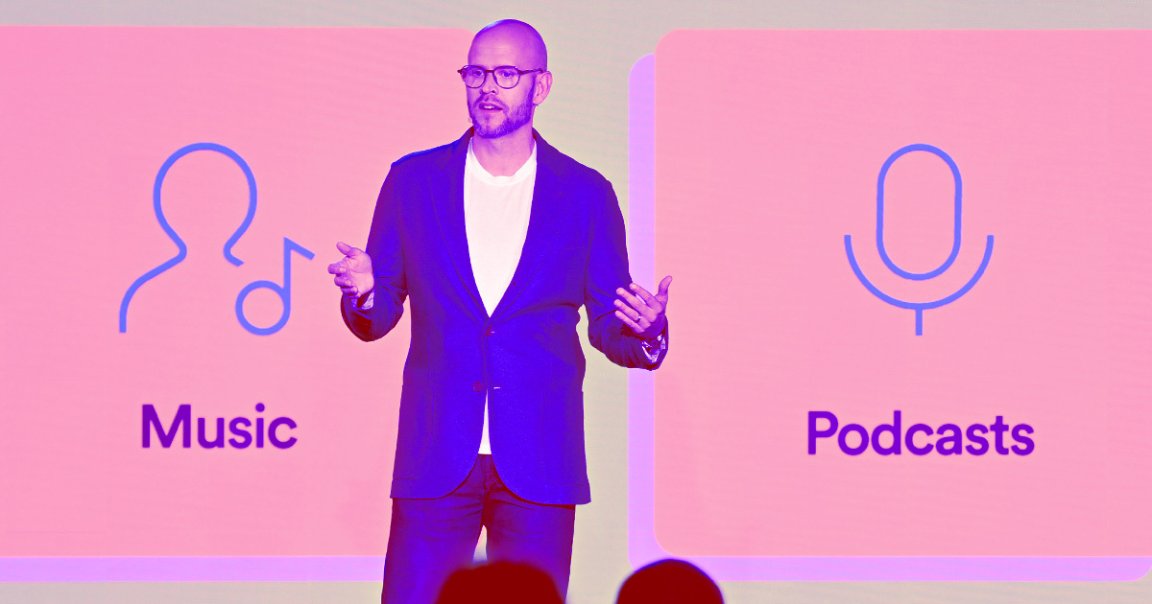
Mind Blown
Surprise! Sometimes workers do, in fact, work.
In December, music streaming giant Spotify fired 1,500 workers, a cohort amounting to a staggering 17 percent of its total workforce at the time. Spotify CEO Daniel Ek chalked the culling up to cost cuts and bloat reduction, saying that too many roles had been “dedicated to supporting work and even doing work around the work rather than contributing to opportunities with real impact.”
But as Fortune reports, Ek appears to have recently learned that supporting work and or even “work around the work” adds up. On an investor call this week following Spotify’s Q1 report, the streaming CEO admitted that while the layoffs were the “right strategic decision,” firing 1,500 employees “did disrupt our day-to-day operations more than we anticipated.”
“It took us some time to find our footing,” Ek continued, according to Fortune, “but more than four months into this transition, think we’re back on track.”
So, to recap: CEO fires nearly 20 percent of his total staff, only to discover that his fired staffers were actually contributing to the company’s workflow. The webs we weave.
Bigger Holes to Patch
Despite its post-layoff struggles, Spotify did have a good Q1, raking in a self-record-breaking quarterly profit. And sometimes, it’s true that companies do over-hire — a reality exemplified by the tech industry, which saw record layoffs last year after a decade of fairly steady workforce increases furthered by the industry’s pandemic hiring boom.
Still, overhiring alone isn’t the driving force behind Spotify’s layoffs.
The streaming industry as a whole — be it music or television streaming — has always struggled with profitability. In Spotify’s case, its margins only seem to be growing increasingly questionable. Because copyright exists, access to an endless music library isn’t cheap. To make such access cheap for its users, however, Spotify bears the brunt of that cost. Which works out great for users, of course, but not so great for the company itself.
“On the surface,” Spotify’s business model “looks great,” Simon Dyson, senior principal analyst at the consultancy firm Omdia, told Wired last year following Ek’s layoff announcement. “It’s [those] nagging costs that it can’t get on top of.”
In other words, Spotify’s issues are much bigger than a lack of employee productivity.
At the end of the day, we’re glad to see Ek realize that workers really do work. Still, it’s unfortunate that it took firing 1,500 people to figure that out.
More on CEOs and workforce thoughts: CEOs Suddenly Fear AI Will Take Their Jobs Too